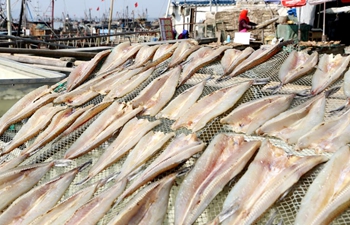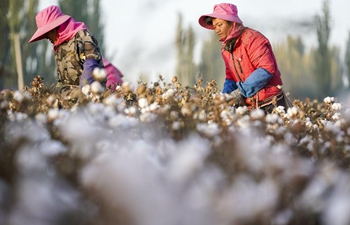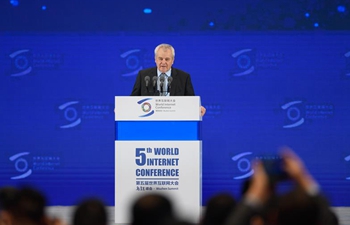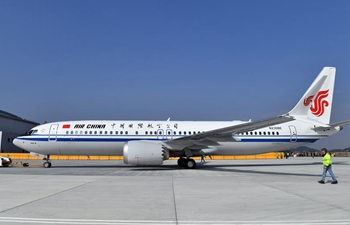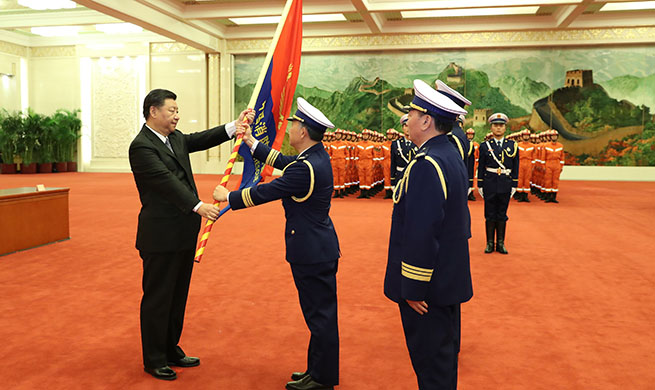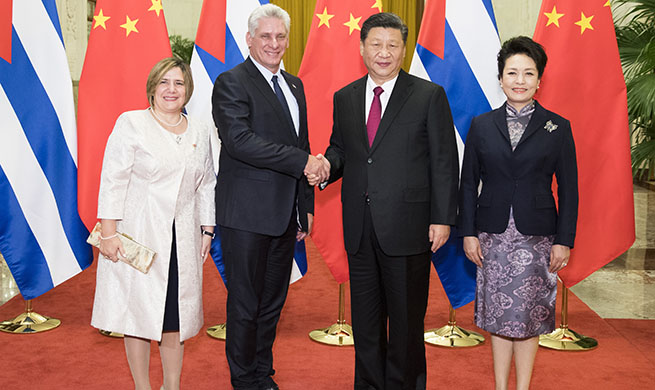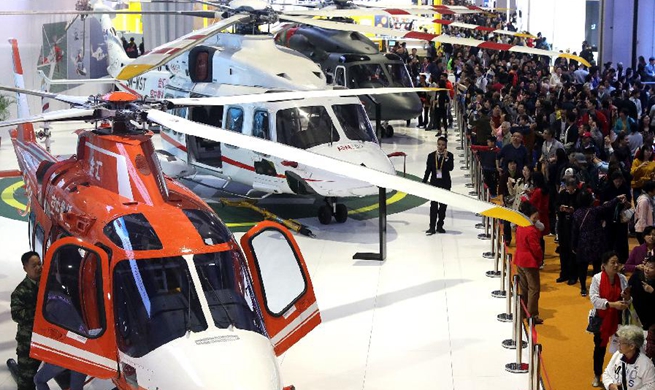by Burak Akinci
ANKARA, Nov. 10 (Xinhua) -- As U.S. President Donald Trump is sending troops to the Mexican border to block a few thousand migrants, Turkey is hosting 3.6 millions Syrians who are likely to stay indefinitely amid a troubling changing mood toward them.
Hussam has been living in Ankara since 2015. Before that, the 29-year-old silver craftsmen from Aleppo city, northern Syria, was staying in one of the few camps located in southeastern Turkey, near Syrian border.
"I had to leave to find myself a job to support my family. Even though Turkey has been very generous to us, I did not want to stay in a camp so we moved to Ankara where I was able to find a job in a jewelry workshop," he told Xinhua.
Like many other Syrians, he is not envisaging to return to his country any time soon as hostilities are still continuing there despite precarious ceasefires.
"We are not planning to return even if there is a peaceful settlement because it will take many more years to reconstruct Aleppo and other devastated cities. We have established our lives here," said Hussam.
Experts think that those Syrians who have nothing to return to their homeland will eventually stay in Turkey.
"People who have built their lives from scratch, are opponents to the (Bashar al) Assad regime, who had their children in Turkey and have no more properties in Syria are likely to stay, our researches point to this fact," sociology professor and migration scholar Sebnem Koser told Xinhua.
Koser, director of the Center of Asian Studies at the Istanbul Koc University, underlined that "more than 600,000 Syrian children who are in school in Turkey will more likely feel themselves as Turkish."
Turkey which has made internationally recognized efforts to alleviate the suffering for millions of Syrians, hosts actually the largest refugee population around the world.
New statistics announced by the Department of Migration in Turkey showed that 395 Syrian children are born every day in Turkey. Around 280,000 Syrian babies have been born in Turkey, a high birth rate which is a challenge for the country's demographic fabric.
But Koser believed that this could be turned into an advantage with adapted policies as Turkey's population is getting older with a decreasing birth rate.
"Turkey has spent so far 33 billion U.S. dollars for its Syrian refugee population. Compared with those in Jordan and Lebanon, their situation here is better," added the expert.
The number of registered Syrian refugees in October stood at 3.589 million, according to figures from the United Nations refugee agency.
There are also around 450,000 refugees from Iraq who escaped exactions from the Islamic State (IS) before the extremist group was drive away from northern Iraq in 2017.
But Turkey is largely saturated and simply cannot accept any more refugees. The Turkish government has recently tightened its policies on the refugees.
In 2018 until now, 430,000 illegal immigrants have been stopped from entering Turkey, a main route for those trying to get to Europe, as a result of improved security measures, including a 2.5-meter-high security wall erected on the Syrian border, security sources told state-run Anadolu News Agency.
Turkey has organized two cross-border military operations into Syria to fight against IS and Kurdish fighters, and hoped that they would open the way for Syrians to return to their homeland.
It seems that it has only partially worked as Turkish Defence Minister Hulusi Akar said last week that a total of 260,000 Syrian nationals have returned to a swathe of land in northern Syria, which has been cleared by the Turkish army from extremist elements.
Turkey is encouraging Syrians to return on a voluntary basis, and has also made an effort to provide education and healthcare there, including mental health.
Turkey has witnessed this summer a financial crisis and a currency meltdown which has seriously deteriorated the economic outlook.
The "Syrian Barometer" poll illustrates that most Turks do not like Syrian refugees. They were considered as a burden and blamed for deteriorating public services, price increases, and rising unemployment, especially when the economy is slowing down amid high inflation.
Although the Turkish government has emphasized cultural and religious affinities with Syrian refugees, the public perceives a surprisingly large cultural and social distance.
There are frequent reports of tension between refugees and locals. This makes it difficult for the Turkish government to be forward-leaning on a strategy of integration that acknowledges Syrians are not likely to go home any time soon.
Turkey's President Recep Tayyip Erdogan justified Turkey's military interventions into northern Syria by saying that its aim was, in part, "to help return Syrian refugees to their homes," adding "they will not stay forever here."
As local elections are looming in March 2019, observers expected that the refugee issue will be playing a role in the campaigning ahead. Generally during elections the nationalist discourse targeting immigrant groups increases amid economic grievances.
In Istanbul alone, Turkey's most populated city with 15 million inhabitants, there are a total of 563,000 Syrians, a massive 20 percent of all Syrians.
In some southern cities, the number of Syrians exceed even those of Turkish locals, making it a serous headache for local authorities.





